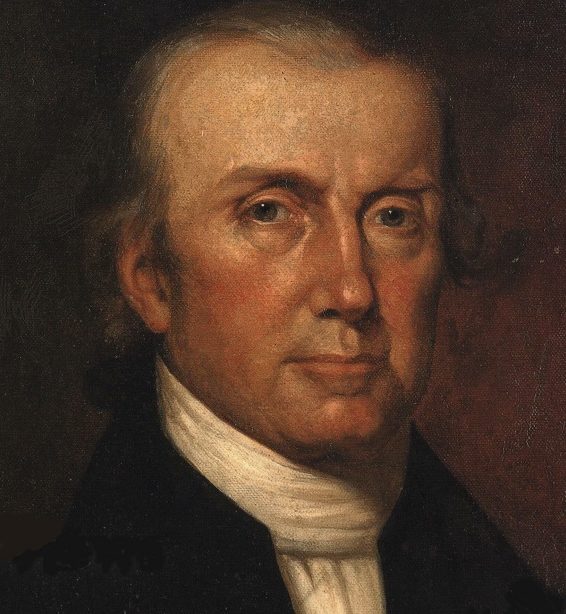
John Taylor was born in Orange County, Virginia, in 1750, one year before James Madison, and the boys were neighbors; but Taylor afterwards moved to Caroline County, where he lived for the rest of his life, and died in 1824, at the age of seventy-four years. To distinguish him from others of the same name as himself he was called John Taylor of Caroline. He was an officer in the Revolutionary War, and ranked with the foremost men of his State. He did not approve of the Constitution, but was not a member of the State Convention in which its ratification was so bitterly contested. December 12, 1792, he took a seat in the United States Senate made vacant by the resignation of Richard Henry Lee, and served until he resigned in 1794. In 1803, from October 17 to December 13, he filled an unexpired term by appointment, caused by the death of Stevens Thomson Mason, and again he served from December, 1822, to his death in August, 1824. He was in the State Legislature several times, and in 1798 introduced the famous Virginia Resolutions which Madison had prepared. He was one of the conference of Jefferson, George Nicholas, Wilson Cary Nicholas, John Breckinridge, and Madison, at which it was determined to formulate the creed which the Virginia and Kentucky Resolutions announced. He was always a consistent state rights man, and the preservation of the division of power between the general and state governments was the keynote to his political belief. “The federal party,” he said in one of his newspaper letters, to Thomas Ritchie, printed in *“The Spirit of Seventy-six,” March 27, 1809, “were in favor of a government founded upon a balance of power between the departments of the government, their opponents of one founded upon its division between government and the people, and between two governments.” It is not known whether he was an emancipationist, as nearly all the leaders of thought in Virginia of this period were, but he denounced any interference with slavery by the general government, and the fear that there would be such interference, if the policy of the general government should be shaped by an unchecked majority, was really the fundamental cause of his insistence upon state rights.
More @ The Abbeville Institute
*My friend and I were going to open a bar of the same name in Saigon but when we arrived the day of the takeover with two 22K BTU Carrier air conditioners, the owners wouldn't answer the door. :) Evidently they had been bought off by the competition. When we went to sell them we had a good offer, but when they found out the pair had been built in Singapore instead of the US, they backed out.

No comments:
Post a Comment